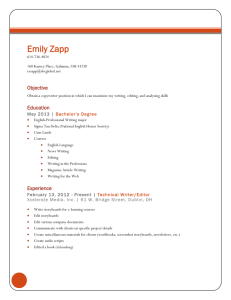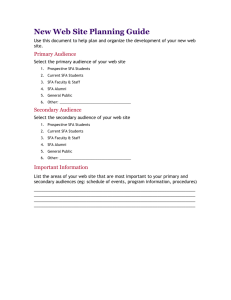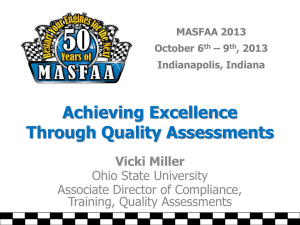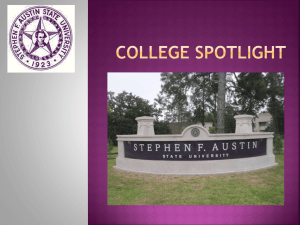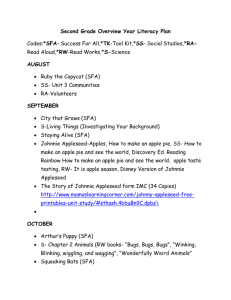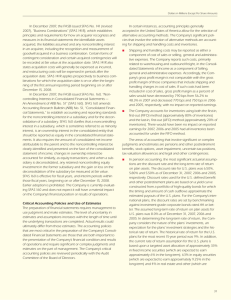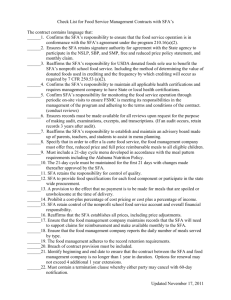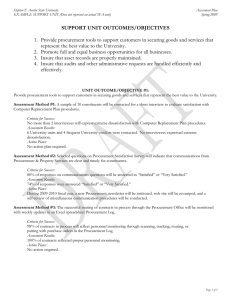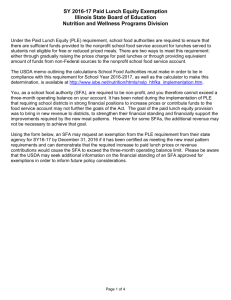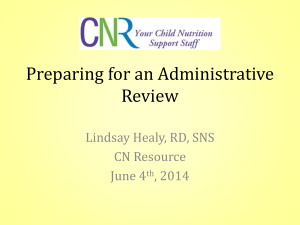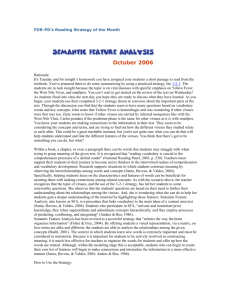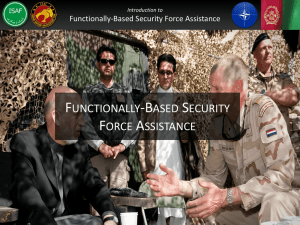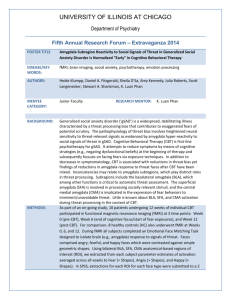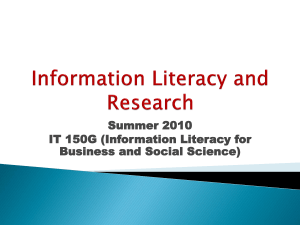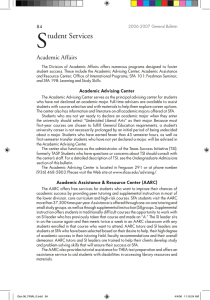Success for All - Living up to its name?
advertisement
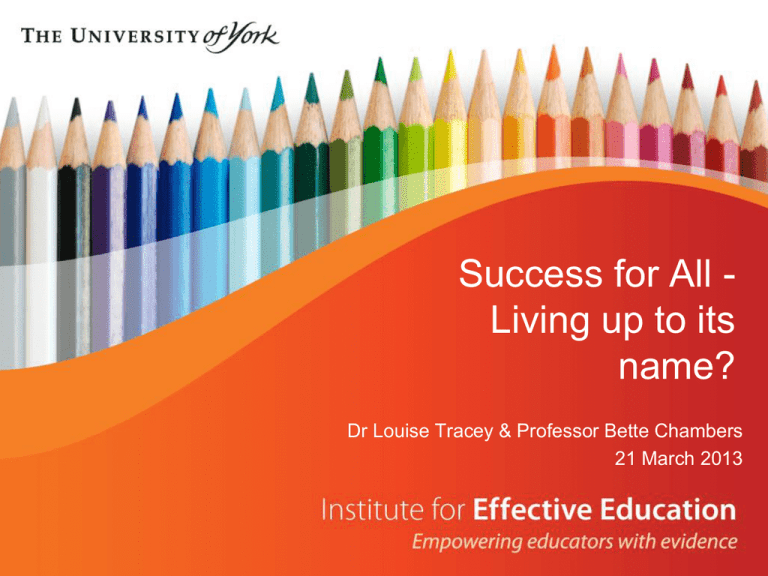
Success for All Living up to its name? Dr Louise Tracey & Professor Bette Chambers 21 March 2013 Inequalities in Society • Nearly 4 million children are living in poverty in the UK (after housing costs) http://www.endchildpoverty.org.uk/ • Inequalities in pre-school/school entry • Importance of the Home Learning Environment (HLE) (Melhuish et al., 2001) • Gaps increase throughout school career (ages 7, 11 & 16). Literacy • Importance of early literacy • Support for systematic phonics instruction (Rose Review 2006, National Reading Panel, 2000) • Primary framework & Letters and Sounds (2007) Success For All (SFA): 1 • Started in US, 1987 • Introduced in UK, 1997 • Empirical studies in US (Mean effect size +0.29) • Cost effectiveness • Allen Report (2011) Success For All (SFA): 2 Professor Bette Chambers Background • Success For All is a charitable foundation - a nonprofit making organisation. • Success for All’s main aim is to work in areas where there is underachievement. • The overriding idea behind SFA is to use everything we know about effective teaching and learning to make a difference to the life chances of children and their families. Evidence-Based Intervention • Success for All was designed to put into practice the findings of longitudinal and externally validated research on teaching and learning. • SFA has been subjected to rigorous evaluations including large-scale randomised studies. SFA has been awarded the highest rating for effectiveness by numerous raters. Key Features • • • • • • • • Co-operative learning embedded throughout. Balanced literacy teaching. Extensive materials. Pupils grouped by stage not age for literacy lessons. Fast-paced engaging lessons. Intensive initial training and ongoing in-school support. Whole school reading assessments. Pupils re-grouped according to their progress for the next term. • Tutoring for struggling readers. • Family support. Co-operative Learning - The Cycle of Instruction Teacher Presentation • Teach • Model • Guide Practice • Recognise • Celebrate • Prompt • Reinforce • Peer pre-assessment Assessment • Monitor • Assess © 2011 Success for All Foundation Partner/Team Practice Celebration Success for All: The Curriculum Curiosity & Kinder Quest Cooperative Learning Year 1 (beginnin g readers to NC level 2c) Roots Wings Typically year 2 - 6 (NC level 2c readers and above) © 2011 Success for All Foundation Nursery & reception Typically year 7 & 8 (NC level 2c readers and above) Success for All Ofsted Key Judgements • SFA significantly improves the quality and consistency of teaching throughout the school. • SFA increases pupil engagement and motivation. • Pupils are set challenging tasks matched to their particular needs – the co-operative learning strategy engages all pupils in learning. • SFA raises expectations. • SFA enhances the quality of leadership and management - developing expertise within the school and building its capacity to sustain improvement. SFA in the UK • Introduced in UK, 1997 • Small scale studies conducted • First large-scale longitudinal study in the UK (20082012) Research Design • Quasi-experimental design (matched) • 40 schools (20 control, 20 intervention) • Long-term implementers to new starters Study Design Recruitment: Reception September 2008 – Pre-test Post-testing: Summer 2009 (end of Reception), Summer 2010 (end of Year 1) Summer 2011 (end of Year 2) Summer 2012 (end of Year 3) Assessments • BPVS – receptive vocabulary • WRMT – Letter ID – Word ID – Word Attack • YARC – Rate, accuracy & comprehension Assessments Schools profiles: • No significant difference in pre-test • No significant difference in gender • SEN c.12% I, 9% C • FSM c. 43% I, 36% C • EAL c. 46% I, 24% C Analysis Clustering in schools Results – end of Year 2 • Word ID +0.20 • Word Attack +0.25 • YARC – Accuracy +0.12 – Rate +0.11 – Comprehension +0.06 Implementation fidelity Observations – control & intervention literacy instruction, co-operative learning & assessment Variations – control & intervention literacy instruction, co-operative learning & assessment Discussion • Educationally significant – Positive effect sizes (& long-term) • Fidelity – similarities & differences • Working with schools School Feedback Assessments Assessors Feedback change Next Steps? • EEF RCT SFA Team Alphie Quest Any Questions? Questions for discussion • How important is it to evaluate literacy programmes? • Are RCTs the way forward? • If so, how do we get involvement of schools? Thank you! Further queries: louise.tracey@york.ac.uk
